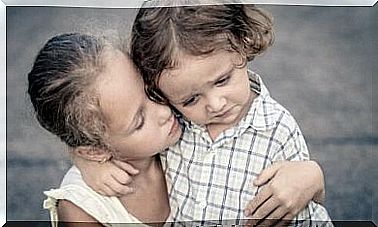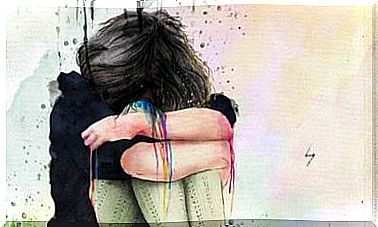It’s Good To Let Go: Freedom From Resentment

It’s good to let go, but it’s better to do so without any residual bitterness in mind. Free yourself from the burden of anger, rage, and despair. When you are able to release your grip on another person in complete peace, the way you see them leaving becomes more subdued, lighter, and more liberating.
This may seem contradictory, but avoiding painful and unhealthy feelings is as much as possible. While some situations really require you to experience them intensely, it is possible to do this without hurting, without intrigue, looking for a way to hurt those who have hurt us.
How can we let another person go without feeling bitterness? By channeling, preventing emotional overflow, knowing our own feelings, and allowing ourselves to express them in a way that is as harmless as possible to us and our environment.

Disgrace makes us vulnerable
It is very difficult not to feel anger and bitterness towards someone who has somehow harmed us with their selfishness, attitude, and negative actions. However, we can channel our feelings by taking advantage of a process that includes the following steps:
- Understanding that anger is normal, but rage only makes us experience more pain.
- Each of us should explore the way in which our own feelings manifest and transform into bitterness and resentment. To do this is the first step in broadening our own perspective, allowing our minds and situation to calm down, and then re-evaluating our own situation.
- The facts themselves have already harmed us, so it makes no sense to continue to harm ourselves in any way by perpetuating destructive thoughts and behaviors.
- It is useless to seek satisfaction, to repair and restore the emotional parts that that relationship has taken away in the past. Unfortunately, there are no standard formulas that heal everything that can help you heal your wounds quickly.
- Thus, in order to free ourselves from the heavy burden of a failed relationship, we must first take advantage of that wonderful ability that our brain offers us: the ability to forget.
- However, it is hard to forget, so we must first work to ensure that we do not focus on our memories and the details of the ordeal that worries us.
- This helps us speed up the process of forgetting and neutralize our own unhealthy feelings. The next step is not to pity yourself. Don’t stamp yourself as a victim and alternatively consider forgiving the way the person who wants to leave your life will harm you.

Forgiving them does not remove the damage they caused
No matter how much distance you set between yourself and the situation, forgiveness will not wipe out the damage done. Nor does it justify anything, let alone pardon or forgiveness for the person who has offended you by neglecting your own obligation to your relationship. Forgiveness, however, helps us ourselves so that our own thoughts do not destroy us. And in addition, it helps us maintain the self-confidence and respect we feel for ourselves.
If our desire is not to become a frustrated, bitter, grumpy, fearful, pessimistic, lonely, obsessive, guilty, aggressive, and divisive person, it is very important to forgive.
Each of us should leave in the past relationships that involve negativity and that destroy a part of us that we ourselves value or are grateful for. In this sense, a metaphor called “weight of resentment” is very descriptive:
Resentment, that was the topic of the day in our class. So we could talk about it, the teacher asked us to bring a few potatoes and a plastic bag for class. When we were all seated, he asked us to pick up a potato for each person we were resentful of.
We wrote their names on these potatoes and kept them in a bag. Some of the bags were really heavy. The next step in the exercise consisted of each of us carrying our own bag with us for a week.

Quite as expected, the potatoes started to spoil gradually and we got tired of carrying them with us wherever we went. We understood that lesson because our bags clearly showed us what kind of emotional burden we carried around each day.
When we focused our attention on these bags, we were at the same time ignoring things that were really much more important. At the same time, we felt how the contents of our emotional bags were decaying as a result of the pollution process and began to always be just more uncomfortable to handle.
Only by making this tangible did we realize the price we paid on a daily basis when we carried resentment about something that had happened in the past and that we could no longer change. As our resentment grew, so did our stress, insomnia, and emotional exhaustion.

The absence of forgiveness is like a poison we ingest in small doses, yet over time enough to weaken us. In its brevity, it is clear that forgiveness is not a gift to others, but primarily to ourselves. It is a way to let go of poisoning ourselves.
Consider this, if the difference has already caused considerable damage, there is no point in letting it continue to pull us into this endless downward spiral.









